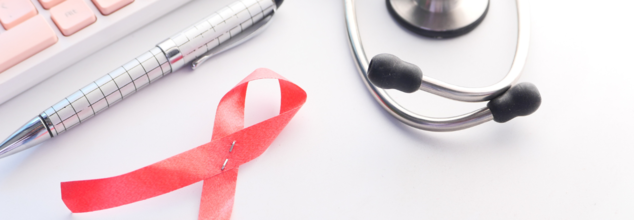
(Credit-Canva)
Your Lifetime Cancer Risk May Be Outlined Even Before Birth, Suggests Studies
One of the biggest concerns people have with cancer is them identifying the signs or symptoms too late for any medical intervention. It is even considered a blessing when you catch the early symptoms of it. There is not a very clear answer for why someone may develop cancer. Some risk factors could be family history, consuming inflammatory and unhealthy things like alcohol and smoking etc. But many time people who are perfectly healthy, lead an active lifestyle are the ones who get diagnosed. So, does this mean you can develop cancer anywhere at any time no matter how careful you are? While it is somewhat true, new research shows that whether you can develop cancer or not is something that is outlined even before you are born.
Scientists have been studying cancer for a long time, and they're still learning new things. One new idea is that your chances of getting cancer might be partly decided even before you're born. A recent study on mice found that there are two different "genetic states" that develop while a baby mouse is still in its mother's womb. These states seem to be connected to how likely a mouse is to develop cancer later in life. This is a big deal because it means that some things that affect our cancer risk might be set very early in our development. It also opens up new ways to think about how cancer starts.
Two Genetic States, Two Risk Levels
The mouse study found two different genetic states that happen while the mice are developing before birth. One of these states seems to make the mice more likely to get cancer, while the other state makes them less likely. Think of it like two different paths: one leading to a higher chance of cancer and the other to a lower chance. This discovery is really exciting because it gives scientists a new way to understand why some people get cancer and others don't. It might also help us find ways to prevent cancer or treat it better.
We all know that getting older makes you more likely to get cancer. This is partly because our DNA gets damaged over time. But not everyone with damaged DNA gets cancer. So, scientists have been looking for other things that might play a role, like our genes. One of the researchers, Ilaria Panzeri, said that we often think of cancer as just bad luck, but that's not the whole story. "Bad luck" doesn't explain everything, and it's not something we can change. That's why understanding the role of genetics is so important.
Role of the TRIM28 Gene
The scientists in this study looked closely at a gene called TRIM28. This gene is important for controlling other genes, including some that are linked to cancer. They found that if mice had lower levels of TRIM28, they could end up in one of the two genetic states, even if they were otherwise identical. These states are set while the mice are still developing, and they stick with them for their whole lives. It's also interesting that the human versions of these genes are often changed in human cancers.
This mouse study gives us a new way to think about cancer. It suggests that the seeds of cancer might be planted very early in life, even before birth. This could change how we study cancer and how we try to prevent or treat it. The researchers also found these two genetic states in different parts of the mice's bodies, which means this might be a general thing that affects many types of cancer. The next step is to figure out exactly how these early genetic states affect different kinds of cancer.
© 2024 Bennett, Coleman & Company Limited

